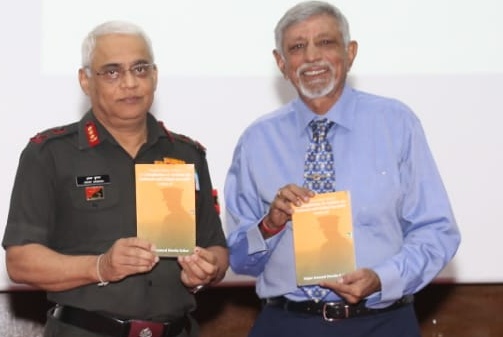
Ordnance factories against privatisation (English version) Rakshak news 16 Aug 19
http://www.rakshaknews.com/vishesh/why-are-ordnance-factories-against-privatization
Ordnance factories against privatisation (English version) Rakshak news 16 Aug 19
A report stated that objecting to privatisation, about 80,000 employees of ordnance factories are planning a month-long strike from 20th Aug. In a letter to employees, G Srikumar, General Secretary of the All India Defence Federation stated that the strike is aimed at protesting against the government’s decision to privatise ordnance factories. He also sent a letter to the defence minister objecting to the same. Mamta Banerjee also wrote to the PM against this move, as the Ordnance Factory Board (OFB), which controls all ordnance factories in India, is in Kolkata.
The 41 ordnance factories under the OFB have, over the years, been a stumbling block to development of the private sector in defence production, while the government has stopped investing in them. As the present strike indicates, they are averse to being tamed and modernized, seeking to produce below levels of demand and failing to even fulfil the agreed quantities, leaving shortfalls in production.
A report over the weekend stated that the value of production up to July 31, 2019 was 20% which is 39% less than the target, while the value of issue (supply) to the army was only 15%, which is 55% less than the estimated target. The report states that there was a shortfall in 24 different types of ammunition and explosives and in 21 types of major principal items, including like Dhanush guns and T-90 battle tanks.
Simultaneous has been issues related to quality in production. There have been multiple accidents due to faulty ammunition and mines produced by them. They have, on occasions, even refused to collect their faulty products from depots, leading to accidents and casualties. They have been delivering poor quality vehicles, including armoured vehicles. They’re after sales service, despite all agreements, has frustrated the armed forces.
On the contrary Ravindran Pillai, vice president of one of the unions stated, ‘Any private manufacturer always only looks at profit. His national interest will be the last. Quality assurance in the private sector will be done by third party inspection and self-certification. It is putting the lives of our jawans and armed forces on the risk. OFBs only work for national interest.’ The OFB are the worst in performance and most possess self-certification, adding to woes of the armed forces. Faith within the army on their products has eroded substantially.
Having armed forces as their fixed customers have enabled them to charge as per their own calculations. Even the Controller General of Defence Accounts had stated in a report to the MoD in May 16 that ordnance factories were overcharging the army several hundred crores. As an example, he quoted the case of the T-90 tanks built under licence from Russia at the Heavy Vehicles Factory, Avadi. In this production the OFB was charging the army Rs 21 crore per tank, nearly 50 per cent more than what an import would cost.
As per present government thought process on privatisation, it would pay for salaries and perks for the employees for five years, beyond which these would be the responsibility of the corporation. Even this has not satisfied the unions. The reason for objecting to privatisation by unions, apart from job security, is that this would be a threat to national security. This is illogical as the private sector has been engaged in multiple fields and has proved its mettle in meeting timely demands.
The reality remains that ordnance factory employees have become accustomed to slow and poor-quality production, which would not be feasible under the private sector. Despite all its efforts, the government has been unable to improve functioning of these age-old factories. An OFB official maintained that ordnance factories cannot be run on a commercial basis, since a ‘war reserve’ must be kept. He stated, ‘No private sector will be able to maintain idle capacity as a war reserve.’ Militaries across the world depend on private suppliers and there have been no problems, why should one arise in India.
As per available information, in the first stage the government seeks to offer a few factories for public-private partnership. Privatisation had been recommended earlier by multiple committees, but every government hesitated considering the impact on vote banks. This is the first government which has decided to take the bull by the horns. It has realized that these factories consume a large part of the defence budget but give little value in return.
In desperation on being unable to reform their working ethos, the government is establishing the factory at Amethi to produce AK 203 rifles in conjunction with Russia under the control of the army. To break the nexus of their unions, the staff at the Amethi factory would comprise of veterans belonging to the region. The government hopes this model becomes a success which could enable them to follow the same in other essential ordnance factories.
The government is also pushing for ‘make in India’. If this is to succeed, then ordnance factories which have a stranglehold on defence production must be privatised. Unless the government ignores their pressures and strikes, it will never succeed in opening the private sector for defence needs and ensuring availability of right quality and quantity.